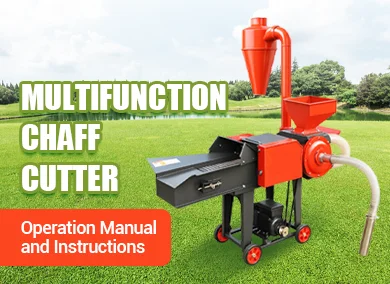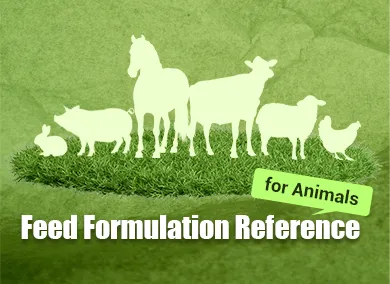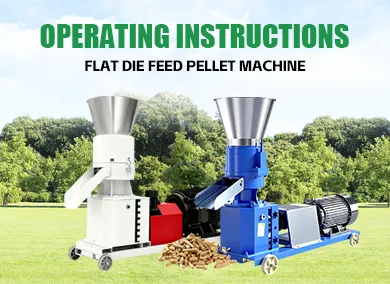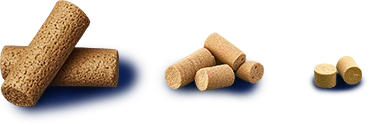Chicken manure is a natural fertilizer full of nutrients like nitrogen, phosphorus, and potassium that plants need. But using it directly can lead to bad odors and uneven applications. Turning chicken manure into organic fertilizer pellets makes it easier to use and more effective.

Nutrients Contained in Chicken Manure
Chicken manure is rich in nutrients, including a variety of plant elements:
|
Nutrient Composition |
Content |
|
Nitrogen |
About 1.5% - 3% |
|
Phosphorus |
About 0.8% - 2% |
|
Potassium |
About 0.5% - 2% |
|
Calcium |
About 0.6% - 1% |
|
Magnesium |
About 0.2% - 0.6% |
|
Microelement |
Iron, Zinc, Copper, Manganese, etc. |
|
Organic Matter |
About 20% - 50% |
Chicken manure contains trace elements that support plant nutrient processing and immunity. Its organic matter improves soil structure, boosts fertility, and supplies essential nutrients. Chicken manure is an excellent natural fertilizer, packed with nutrients your plants will love.
- Nitrogen promotes leaf growth.
- Potassium enhances stress resistance.
- Phosphorus supports root development.
- Calcium and magnesium improve plant health and enrich the soil.
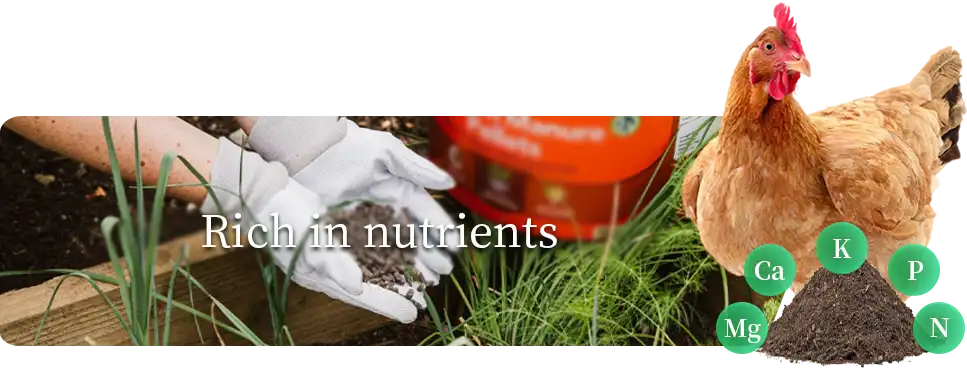
Why Avoid Direct Use of Fresh Chicken Manure?
Fresh chicken manure is high in nitrogen and moisture, which can harm the soil if used directly. It may also carry harmful pathogens and parasites that affect crops and human health.Its high water content makes it hard to store and move. It can also make the soil harder for water to pass through or turn the soil more acidic.
Given these challenges, the solution is to process chicken manure into pellets. Pelletizing reduces moisture content, eliminates pathogens through drying, and helps control the release of nutrients over time.
How to Turn Chicken Manure into Effective Fertilizer
To use chicken manure safely in agriculture, we can turn it into pellets. Modern machinery and efficient processes make it easy to store, transport, and apply.
To make chicken manure pellets, you'll need several devices:
- Drying equipment (removes excess moisture)
- Shredders (crush chicken manure into fine particles)
- Mixers (blend manure with other materials)
- Pelletizers (compress the mixture into pellets)
- Cooling equipment (lowers pellet temperature for hardness)
- Sieving machines (sort out the good pellets)
- Packaging equipment (for storage and packaging)
These tools form a complete production line. You can choose the right model and scale based on your needs.
Production Process:
Step 1: Collection and cleaning
Collect fresh chicken manure and remove impurities like feathers and sand. These can affect feed quality and damage the equipment.
Step 2:Dehydration
Chicken manure has high moisture, which can cause mildew and spoilage if used directly. You may choose to dry the manure naturally in the air or by using a dryer. The ideal moisture content should be between 20-30%.
Step 3:Grinding
Send the manure through a grinder to break it into smaller particles or powder for consistency.
Step 4: Mixing
Add other raw materials (like straw or fodder) and mix them evenly with the crushed manure.
Step 5: Granulation
The mixture is then compressed into pellets using a granule machine. This process uses natural binders in the manure to shape the pellets, with a typical pellet size between 2-4 mm. Control the temperature and pressure carefully to make the pellets strong.
Step 6: Cooling and screening
After gradulation, the pellets are hot and need to cool down to prevent deformation. Cooling equipment lowers the temperature. Screen the pellets and remove ones that don't meet the size requirements
Step 7: Packaging and storage
Pack the pellets and keep them stored in a cool, dry area.
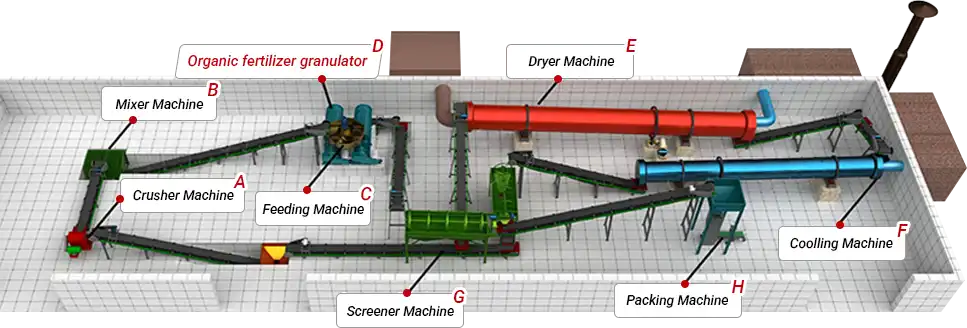
Why Use Chicken Manure Pellets?
Improved nutrient efficiency
Nutrients are more concentrated, allowing plants to absorb them more efficiently.
Reduced pathogens and parasites
These pathogens and parasites can be effectively reduced during production.
Easy storage and transportation
Lower moisture content makes it easier to store and transport over long periods.
Improved soil structure
Increases organic matter in soil, enhancing water flow ability and water retention.
Accurate fertilizer use
Easier to apply evenly, enabling precise fertilizer control and reducing waste.
Reduced environmental pollution
Help reduce pollution caused by improper disposal.
Improved crop yield and quality
Provides essential nutrients for healthy plant growth, boosting yield and quality.
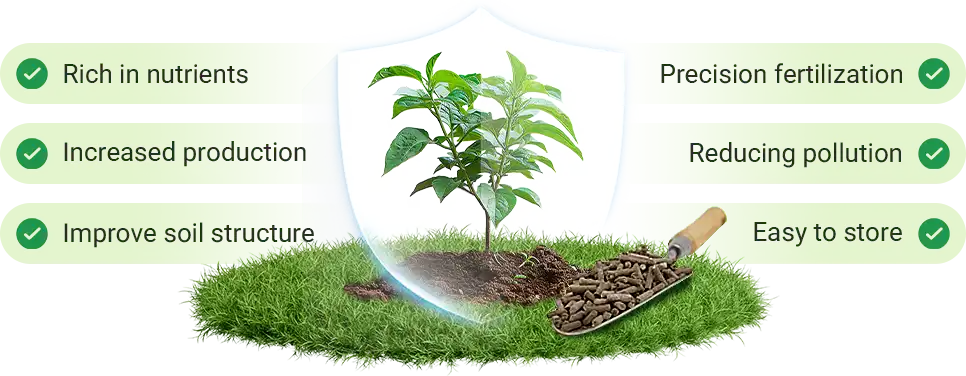
Frequently Asked Questions
What are the uses of organic fertilizer granules?
Chicken manure fertilizer pellets can improve soil, support crops, and enhance animal feed. They are also a source of biomass fuel. Clean raw materials are essential for the next steps
Can organic fertilizer particles replace chemical fertilizers?
Chicken manure pellets can replace fertilizer, especially for sustainable agriculture and improving soil health. However, for high-yield crops or plants that need fast growth, they may not provide enough nutrients. In such cases, mixing them with fertilizer can help ensure crops get the nutrients they need.
Does chicken manure emit an unpleasant odor when used?
Chicken manure pellets generally have a mild odor when used. A slight odor may occur in humid conditions. When applied to crops, the smell is faint and far less noticeable than raw chicken manure.
What soil types are organic fertilizer pellets suitable for?
Chicken manure pellets work well with most soil types, especially poor soil and clays. They improve soil structure, enhance water flow ability, and increase water retention, making them ideal for long-term cultivation.
What other animal waste is suitable for making fertilizer pellets?
Animal manure from cattle, horses, sheep, pigs, and poultry is also rich in important nutrients. These nutrients include nitrogen, phosphorus, and potassium. These nutrients help improve soil quality, boost organic matter, and promote crop growth.
Converting chicken manure into organic fertilizer is an innovative way to protect the environment and turn waste into value. Granulating chicken manure helps farmers lower feed costs, reduce pollution, and improve resource efficiency. If you're seeking an affordable, practical, and eco-friendly fertilizer, chicken manure pellets are a great choice.



